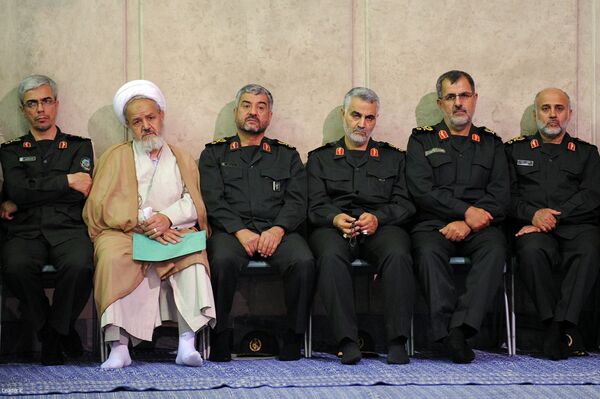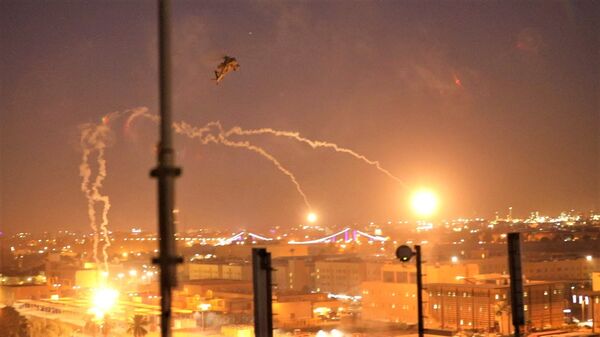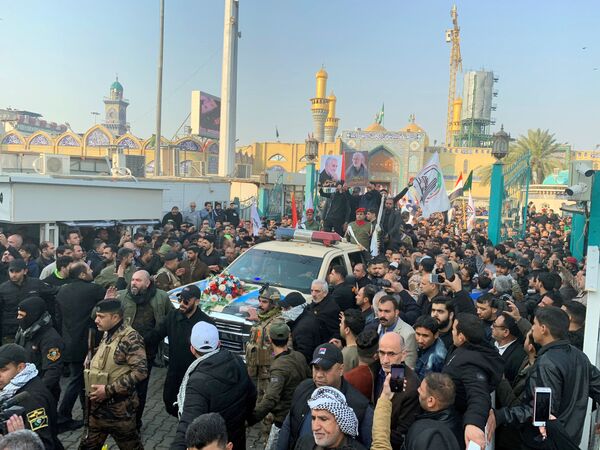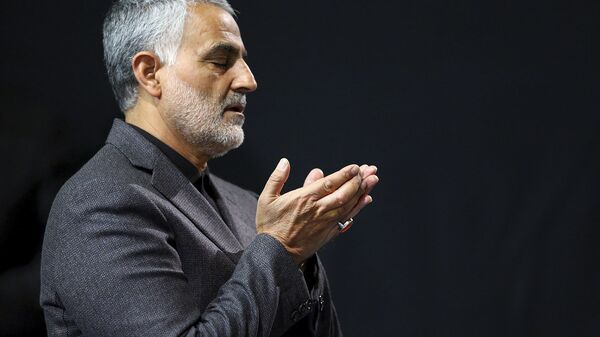US President Donald Trump authorised the assassination of Revolutionary Guard Corps' Quds Force Commander Maj. Gen. Qasem Soleimani despite conflicting information regarding the Iranian general’s intentions, the New York Times has reported, citing the Pentagon and administration sources.
According to the sources, senior officials said that Trump chose to proceed with the assassination amid a ‘new stream of intelligence’, the significance of which was debated inside the administration, about Soleimani’s alleged plans to carry out “imminent” attacks on US diplomats and military forces stationed in Syria, Iraq and Lebanon.
One sceptical official cited conflicting intelligence which did not share these fears, pointing to 30 December expected to be “a normal Monday in the Middle East,” with Soleimani’s travels in the region expected to be “business as usual”. The official cited communications between Soleimani and Iranian Supreme Leader Ayatollah Ali Khamenei, which did not show any imminent plans for an attack as recently as a week before his killing.

Sources also said that while the option of killing Soleimani was listed among one of the possible ‘responses’ to Iran’s alleged involvement in the December 27 rocket attack on a US military base in Kirkuk, Iraq, some officials did not think he would pick what they considered ‘the most extreme response’.
DoD and administration officials said that the president had initially authorised airstrikes against Kata’ib Hezbollah, the Baghdad-allied Shia militia group reportedly supported by Iran. These strikes took place, and over two dozen militia fighters were killed and dozens injured in US strikes on five facilities across Iraq and Syria. However, amid the violence that followed, including the attempt by angry Iraqi protesters to storm the US Embassy compound in Baghdad, Trump reportedly changed his mind, and chose to proceed with killing Soleimani.
The sources also said that that Secretary of State Mike Pompeo and Vice President Mike Pence lobbied Trump to respond hawkishly to ‘Iranian aggression’, with the vice president’s office helping to organise the meetings and conference calls ahead of the assassination.

The NYT piece partially corroborates a recent Bloomberg report citing sources which indicated that National Security Advisor Robert O’Brien, Secretary of State Mike Pompeo, Vice President Mike Pence and Acting Chief of Staff Mick Mulvaney had begun putting together the plot to assassinate Soleimani in the aftermath of the December 27 Kirkuk attack. One US official cited by the business newspaper indicated that the US military wasn’t monitoring Soleimani directly on the night of the attack, but launched the strike on the basis of earlier-obtained information about his expected whereabouts at Baghdad International Airport en route to a third country –possibly Syria or Lebanon, on Friday morning.
On Saturday, sources told The Washington Post that senior US military officials were reportedly “stunned” by Trump’s decision to kill Soleimani. Previous US policymakers did not allow themselves such a brazen response against such a senior member of the Iranian military.
Baghdad Attack
Soleimani served as the long-time commander of the Quds Force, a wing of the Revolutionary Guards tasked with coordinating Iran’s military operations abroad. His activities included the provision of military assistance to Iranian allies abroad, including Lebanon’s Hezbollah militia group and the Syrian government. In Iraq, Soleimani provided assistance to the country’s government-allied Shia militias, formed after Daesh (ISIS)* captured wide swathes of Iraqi territory. These militias, known as the Popular Mobilisation Forces (PMF), went on to play a key role in pushing back and defeating Daesh between 2015 and 2017.
Soleimani was killed in Baghdad on Friday morning after the convoy he was travelling in was struck by a missile launched by a US drone. The attack also killed several PMF members, including senior PMF commander Abu Mahdi al-Muhandis. President Trump justified Soleimani’s death later Friday, with the State Department claiming that Soleimani was responsible for the December 27 attack on the US base in Kirkuk, and alleging that he was planning further attacks on Americans.

*A terrorist group outlawed in Russia and many other countries.



